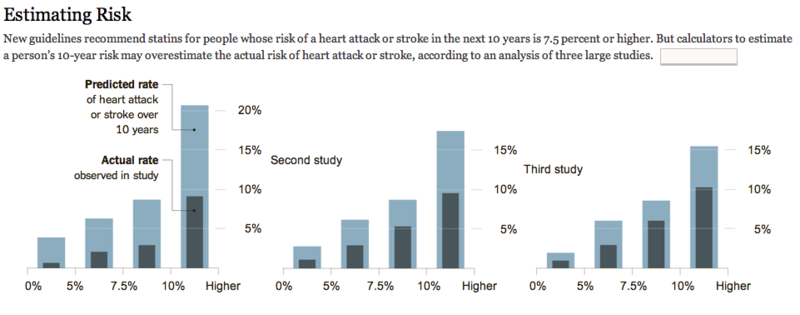Sandbox: Difference between revisions
No edit summary |
No edit summary |
||
| Line 8: | Line 8: | ||
[[File:EstimatingRisk.png | 800 px ]] | [[File:EstimatingRisk.png | 800 px ]] | ||
For | For commentary on a related story, see the post [http://www.healthnewsreview.org/2013/11/the-economics-politics-of-drugs-for-mild-hypertension/ The Economics & Politics of Drugs for Mild Hypertension] from HealthNewsReview.org (4 November 2013), which begins | ||
<blockquote> | <blockquote> | ||
The Cochrane Collaboration’s Hypertension Group published a [http://onlinelibrary.wiley.com/doi/10.1002/14651858.CD006742.pub2/abstract;jsessionid=6C5C0267361C5A1172351D6BF4763110.f04t04 systematic review of drug treatment for mild hypertension] in August 2012 showing no evidence that drugs benefit patients while about 11% have side effects severe enough to stop treatment. As coauthor of that review, I will comment on the economics, politics, regulatory intrigue, financial conflicts, and subsequent media coverage involved. | The Cochrane Collaboration’s Hypertension Group published a [http://onlinelibrary.wiley.com/doi/10.1002/14651858.CD006742.pub2/abstract;jsessionid=6C5C0267361C5A1172351D6BF4763110.f04t04 systematic review of drug treatment for mild hypertension] in August 2012 showing no evidence that drugs benefit patients while about 11% have side effects severe enough to stop treatment. As coauthor of that review, I will comment on the economics, politics, regulatory intrigue, financial conflicts, and subsequent media coverage involved. | ||
Revision as of 20:59, 18 November 2013
Risk calculator for cholesterol appears flawed
by Gina Kolata, New York Times, 17 November 2013
The article links to the following graphic summarizing the findings
For commentary on a related story, see the post The Economics & Politics of Drugs for Mild Hypertension from HealthNewsReview.org (4 November 2013), which begins
The Cochrane Collaboration’s Hypertension Group published a systematic review of drug treatment for mild hypertension in August 2012 showing no evidence that drugs benefit patients while about 11% have side effects severe enough to stop treatment. As coauthor of that review, I will comment on the economics, politics, regulatory intrigue, financial conflicts, and subsequent media coverage involved.
Submitted by Paul Alper
